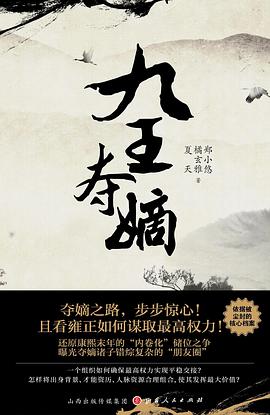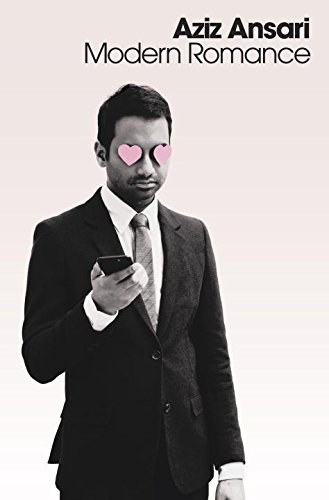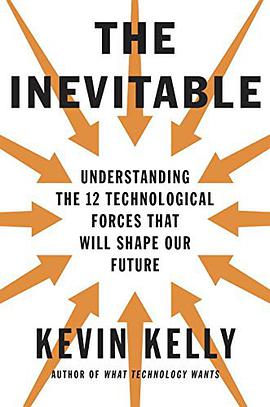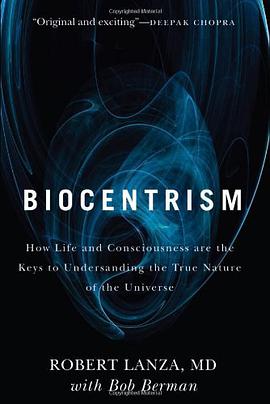九王夺嫡 豆瓣 Goodreads
7.6 (16 个评分)
作者:
郑小悠
/
橘玄雅
…
山西人民出版社
2021
- 4
内容简介:
帝制时代,皇位继承问题往往困扰着最高统治者,即使康熙这位英明睿智的君主,也被弄得焦头烂额:老皇帝始终不放权,皇太子跃跃欲试;老皇帝疑惧被夺权,皇太子担忧地位不稳,不安全感笼罩在各自心头。其他皇子们也虎视眈眈、蠢蠢欲动,甚至拉帮结派。明争与暗斗纷起,阳谋与阴谋交杂……康熙年间的储位之争,是强烈牵动朝局的重大事件。本书展现的正是那段惊心动魄的历史。
皇嫡子允礽:两岁即被立为太子,做太子长达30多年,为何两度被废,将一手好牌打得稀烂?
皇长子允禔:被康熙帝委以重任;才华横溢又“具有其他种种美德”的他竟用巫术诅咒太子,东窗事发,被幽闭高墙内长达26年。
皇三子允祉:能文能武,颇得康熙帝赏识;在太子二次被废后,成为储位的有力竞争者,为何最终还是落了下风?
皇四子胤禛:看起来势单力薄、一度地位相当边缘化的他,怎样不动声色地打造了政治班底,在关键时刻掌握优势?
皇八子允禩:被大臣誉为“目下诸王,八王最贤”,甚至获得了皇长子的保举。人缘如此之好,为何竟被康熙帝詈骂“辛者库贱妇所生,自幼心高阴险”,父子反目成仇?
皇九子允禟:心思机巧,善于收买人心,被人誉为“有帝王体”,为何终究难成气候?
皇十子允䄉:生母出身于满洲阀阅之家;优越感强,为何却沦为权力角逐中的二线角色?
皇十三子允祥:文武双全,原本是“太子党”的铁杆成员,为何突然成了胤禛的忠实盟友?
皇十四子允禵:“八王党”后期的代言人,被任命为大将军,战功赫赫,很多人期待其成为皇位继承人,为何他却在康熙去世之前被调离京师?
精彩看点:
◎依据被尘封的核心档案,还原康熙末年的“内卷化”储位之争,曝光夺嫡诸子错综复杂的“朋友圈”。
◎夺嫡之路,步步惊心!且看雍正如何谋取最高权力!
◎皇位之争,风云诡谲;成败之机,分秒即逝。抉择稍有不慎,便是通天坦途与万丈深渊之别!
——————————
◎收录精心梳理的人物关系图表,呈现康熙后宫集团等级,以及夺嫡诸王各派系成员关系。
◎本书除了从专业视角加以考量,还加入了对文学、影视剧流行说法的解读,以及对普通读者兴趣点的反馈,希望借此架起学术研究与公众认知的沟通桥梁。
——————————
◎完整叙述康熙末年夺嫡纷争的成因、过程、结果,以及这场残酷争夺在雍正、乾隆年间的后续影响。
◎细致分析争权漩涡中诸皇子的出身背景、性情资质、政治班底、人际网络、行事策略等,呈现了“太子党”“八王党”等势力集团的聚合分化与荣辱浮沉,讲述了由储位争夺而引发的一系列大案要案。
◎作者依据对清宫档案材料的条分缕析,严谨辨析康熙去世、胤禛即位前后的重重疑点,对康雍之际权力更替提出独到见解。
◎书中从侧面展现了君主专制如何在康熙至乾隆年间逐步加强,以及在“帝王心术”统驭的政治生态中,人之生存处境的变幻无常、朝不保夕。
——————————
◎一个组织如何确保最高权力实现平稳交接?
◎康熙帝晚年二废太子之后,为何迟迟不再公开立储?
◎若论年龄资历、出身背景、人脉资源等方面,胤禛在参与夺嫡的皇子们之中,并不占据优势,甚至一度处境相当边缘化,为何却能“逆袭”成为最终赢家?
◎胤禛有何独特的识人眼光和笼络之术?登上权力巅峰成为雍正帝之后,他是怎样巩固地位的?
◎势力强大的“八王党”阵营中,谁是雍正帝最忌惮的对手?
◎原属于“太子党”铁杆成员、一度备受康熙冷落的允祥,为何后来受到雍正帝格外厚爱和重用?
◎雍正帝登基后设计的“秘密立储”制度,对于清代皇权交接,有着怎样的利与弊?
帝制时代,皇位继承问题往往困扰着最高统治者,即使康熙这位英明睿智的君主,也被弄得焦头烂额:老皇帝始终不放权,皇太子跃跃欲试;老皇帝疑惧被夺权,皇太子担忧地位不稳,不安全感笼罩在各自心头。其他皇子们也虎视眈眈、蠢蠢欲动,甚至拉帮结派。明争与暗斗纷起,阳谋与阴谋交杂……康熙年间的储位之争,是强烈牵动朝局的重大事件。本书展现的正是那段惊心动魄的历史。
皇嫡子允礽:两岁即被立为太子,做太子长达30多年,为何两度被废,将一手好牌打得稀烂?
皇长子允禔:被康熙帝委以重任;才华横溢又“具有其他种种美德”的他竟用巫术诅咒太子,东窗事发,被幽闭高墙内长达26年。
皇三子允祉:能文能武,颇得康熙帝赏识;在太子二次被废后,成为储位的有力竞争者,为何最终还是落了下风?
皇四子胤禛:看起来势单力薄、一度地位相当边缘化的他,怎样不动声色地打造了政治班底,在关键时刻掌握优势?
皇八子允禩:被大臣誉为“目下诸王,八王最贤”,甚至获得了皇长子的保举。人缘如此之好,为何竟被康熙帝詈骂“辛者库贱妇所生,自幼心高阴险”,父子反目成仇?
皇九子允禟:心思机巧,善于收买人心,被人誉为“有帝王体”,为何终究难成气候?
皇十子允䄉:生母出身于满洲阀阅之家;优越感强,为何却沦为权力角逐中的二线角色?
皇十三子允祥:文武双全,原本是“太子党”的铁杆成员,为何突然成了胤禛的忠实盟友?
皇十四子允禵:“八王党”后期的代言人,被任命为大将军,战功赫赫,很多人期待其成为皇位继承人,为何他却在康熙去世之前被调离京师?
精彩看点:
◎依据被尘封的核心档案,还原康熙末年的“内卷化”储位之争,曝光夺嫡诸子错综复杂的“朋友圈”。
◎夺嫡之路,步步惊心!且看雍正如何谋取最高权力!
◎皇位之争,风云诡谲;成败之机,分秒即逝。抉择稍有不慎,便是通天坦途与万丈深渊之别!
——————————
◎收录精心梳理的人物关系图表,呈现康熙后宫集团等级,以及夺嫡诸王各派系成员关系。
◎本书除了从专业视角加以考量,还加入了对文学、影视剧流行说法的解读,以及对普通读者兴趣点的反馈,希望借此架起学术研究与公众认知的沟通桥梁。
——————————
◎完整叙述康熙末年夺嫡纷争的成因、过程、结果,以及这场残酷争夺在雍正、乾隆年间的后续影响。
◎细致分析争权漩涡中诸皇子的出身背景、性情资质、政治班底、人际网络、行事策略等,呈现了“太子党”“八王党”等势力集团的聚合分化与荣辱浮沉,讲述了由储位争夺而引发的一系列大案要案。
◎作者依据对清宫档案材料的条分缕析,严谨辨析康熙去世、胤禛即位前后的重重疑点,对康雍之际权力更替提出独到见解。
◎书中从侧面展现了君主专制如何在康熙至乾隆年间逐步加强,以及在“帝王心术”统驭的政治生态中,人之生存处境的变幻无常、朝不保夕。
——————————
◎一个组织如何确保最高权力实现平稳交接?
◎康熙帝晚年二废太子之后,为何迟迟不再公开立储?
◎若论年龄资历、出身背景、人脉资源等方面,胤禛在参与夺嫡的皇子们之中,并不占据优势,甚至一度处境相当边缘化,为何却能“逆袭”成为最终赢家?
◎胤禛有何独特的识人眼光和笼络之术?登上权力巅峰成为雍正帝之后,他是怎样巩固地位的?
◎势力强大的“八王党”阵营中,谁是雍正帝最忌惮的对手?
◎原属于“太子党”铁杆成员、一度备受康熙冷落的允祥,为何后来受到雍正帝格外厚爱和重用?
◎雍正帝登基后设计的“秘密立储”制度,对于清代皇权交接,有着怎样的利与弊?




